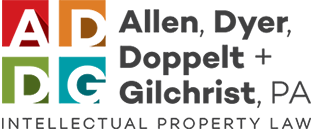COPYRIGHT MATTERS
A copyright is the set of exclusive rights granted to the author of an original work of authorship, including the right to copy, distribute and adapt the work. This set of laws finds its roots in the Copyright Clause of the United States Constitution, which authorized copyright legislation:
Copyright protection is long lasting. The term of a copyright is typically the life of the author plus 70 years after the author’s death. That said, works for hire or cooperate-owned works last 95 years from the first publication, or 120 years from creation, whichever is longer. As such, copyright law represents one of the longest lasting forms of protection available in intellectual property law.
Moreover, copyright law helps protect a large array of ideas, such as literary works, motion pictures/videos, architectural works, two-dimensional artwork (pictures, photographs, paintings, lithographs, etc), three dimensional artwork (sculptures, etc), and even computer software.
Overview
Under current law, copyright protection attaches to a work whether or not the copyright owner registers the work with the U.S. Copyright Office. However, registration is required before an infringement lawsuit can be filed. Also, registering a copyright within three months of the work’s first publication entitles the owner to statutory damages and attorney fees in an infringement action. Copyright registration is inexpensive and it is advisable to register any work believed to be of value.
Furthermore, a copyright owner has the exclusive right to reproduce the work, prepare derivative works based upon the work, distribute copies of the work to the public, perform the work publicly, and display the work publicly. One significant disadvantage of copyright protection, however, is that “independent creation” is a valid defense to an infringement action. In other words, a defendant can avoid liability as long as he or she can show that they did not copy from the earlier work.
The Value of a Copyright Registration
- Creating a public record of your claim of copyright;
- Registration is required before any form of infringement suit may be brought to enforce rights under copyright;
- If registration occurs within 5 years of publishing the work of authorship, registration establishes a presumption of validity and of the facts stated in your copyright registration; and
- If registration occurs within 3 months of publication and prior to infringement statutory damages (including payment of attorneys fees) may be available to the owner of the copyright).
Preparing Copyright Applications to seek Registration:
Our team of Miami copyright attorneys has training, experience and acumen to properly and appropriately prepare copyright applications and attain copyright registrations for all types of available registration – including, but not limited to, artwork, motion pictures, videos, visual arts, paintings, photography, sculptures, computer software and other forms of tangible expression.
An application for copyright registration may be made at any time during the life of the copyright. An application to register a work is made by submitting the following three items to the U.S. Copyright Office:
There are a variety of specific copyright registration forms that can be used, based upon the type of copyrightable work to be registered and protected through the United States Copyright Office. These forms include the following:
Form TX: for published and unpublished nondramatic literary works;
Form SE: for serials such as periodicals or newspapers;
Form G/DN: for a complete month’s issues of a daily newspaper;
Form PA: for the performing arts (musical and dramatic works, motion pictures, and other audiovisual works);
Form VA:for the visual arts (pictorial, graphic, and sculptural works); and
Form SR:for sound recordings.
One of our Miami copyright attorneys will help select which form is appropriate, and determine the best manner to provide accurate and appropriate information to aide in the Copyright Office’s review of your application.
The deposit is generally one or two copies of the best edition of the work. For computer programs, the deposit requirement is one source code print out of the first and last 25 pages of the program. For a program of fewer than 50 pages, the deposit is a copy of the entire program. In addition, provisions are included for blocking out important portions of the source code in order to protect trade secrets.
Copyright Ownership and Assignments:
Our test of Miami copyright attorneys will not only help register your ideas before the United States Copyright Office, but we will also assist in the transfer, sale, assignment and/or license of those rights through customized agreements and related instruments.
Copyright is a personal property right, and it is subject to various state laws and regulations that govern the ownership, inheritance, or transfer of personal property. Any or all of these rights, or any subdivision of those rights, may be transferred. A transfer of one of these rights may be made on an exclusive or nonexclusive basis. The transfer of exclusive rights is not valid unless that transfer is in writing and signed by the owner of the rights conveyed. Transfer of a right on a nonexclusive basis does not require a written agreement.
A transfer of copyright rights is usually either an assignment or a license. An assignment of copyright rights is like the sale of personal property. The original owner sells its rights to a third party, and can no longer exercise control over how the third party uses those rights. A license (or more properly “an express license”) is an agreement where the copyright owner maintains its ownership of the rights involved, but allows a third party to exercise some or all of those rights without fear of a copyright infringement suit. A license will be preferred over an assignment of rights where the copyright holder wishes to maintain some ownership over the rights, or wishes to exercise continuing control over how the third party uses the copyright holder’s rights.
A typical software license agreement is a copyright license agreement. The owner of the copyright in the software wishes to grant the end-user the right to utilize the software in a restricted manner. In return, the end-user may agree to limit its use of the software in a variety of ways and to pay a license fee payment to the copyright owner.
We help all of these forms of copyright registrations – including assistance with works for hire, or transfer through consulting and/or employment agreements.
Copyright Enforcement:
In addition to copyright registrations, our team of Miami copyright attorneys help with enforcing copyright registrations in Federal Court as well as defending claims of copyright infringement. Copyright infringement is the act of violating any of a copyright owner’s exclusive rights granted by the federal Copyright Act. There are three elements that must be in place in order for the infringement to occur.
- The copyright holder must have a valid copyright;
- The person who is allegedly infringing must have access to the copyrighted work; and
- The duplication of the copyrighted work must be outside certain exceptions, including fair use.
Exceptions to copyright infringement may include the following:
Fair Use. This is a doctrine which permits the reproduction of copyrighted material for a limited purpose of teaching, reviewing, literary criticism and the like. “Fair use,” however, is determined on a case-by-case basis.
Public Domain: This refers to works which are no longer covered by copyright law.
Non-Copyrightable Works: Copyright infringement cannot occur when someone uses material that cannot be protected by copyright, such as facts or ideas.
The legal penalties for copyright infringement may include:
- Infringer pays the actual dollar amount of damages and profits.
- The law provides a range from $200 to $150,000 for each work infringed.
- Infringer pays for all attorneys fees and court costs.
- The Court can issue an injunction to stop the infringing acts.
- The Court can impound the illegal works.
- The infringer can go to jail (in certain counterfeiting scenarios).
Our team of Miami copyright attorneys will help address potential claims of copyright infringement, determine if any of these potential defenses to copyright infringement exist, and weight the strengths and weaknesses of a potential claim of infringement. We will also assist through the maze that is known as infringement litigation, including pleadings, depositions, expert testimony, trial prep and eventually trial.
Read More
How To
Sample Patents
Published U.S. Utility Patent Applications
Vertical Positioning Shower Attachment
Assignee: Elimo International LLC Miami, Florida
Inventor: Edgar Lehrer Bronstein Caracas, Venezuela
Publication Date: September 22, 2011
Application No: 12/895,214
Published U.S. Utility Patent Applications
Gel-Based Phenergan Composition
Inventor: Delmer H. Parish Naples, Florida
Publication Date: August 11, 2011
Filing Date: February 9, 2010
Application No: 12/702,814
International WIPO / PCT Patent Applications
Shower Attachment and Related Method
Applicant: Elimo International LLC Miami, Florida
Inventor: Edgar Lehrer Bronstein Caracas, Venezuela
Publication Date: September 22, 2011
Application No: PCT/US2010/032363
Published U.S. Utility Patent Applications
Privacy Bed Shade
Inventor: Amy & Cecil Sewell Sarasota, Florida
Publication Date: August 4, 2011
Filing Date: January 5, 2011
Application No: 12/984,643
Published U.S. Utility Patent Applications
Multi-Card Display Holder for Windshields
Assignee: Park ‘N Display LLC Miami Beach, Florida
Inventor: John David Gardiner Miami Beach, Florida
Publication Date: June 30, 2011
Filing Date: February 22, 2010
Application No: 12/709,808
Published U.S. Utility Patent Applications
Compression Undergarment for Relief of Menstrual Pain
Assignee: Embrace LLC of Sarasota
Inventor: Stephen D. Lee, Robert Brady et al.
Publication Date: February 24, 2011
Filing Date: October 6, 2010
Application No: 12/898,996
Published U.S. Utility Patent Applications
Self-Cleansing Automated Shower
Assignee: Elimo International LLC Miami, Florida
Inventor: Edgar Lehrer Bronstein Caracas, Venezuela
Publication Date: September 22, 2011
Filing Date: June 30, 2010
Application No: 12/827,721
Published U.S. Utility Patent Applications
Gas Powered Self-Contained Portable Winch
Assignee: Wizard Products LLC Naples, Florida
Inventor: M. Andrew Morrison et al. Naples, Florida
Publication Date: September 8, 2011
Filing Date: March 8, 2010
Application No: 12/719,579
Published U.S. Utility Patent Applications
Adjustable Nasal Prong and Headgear Assembly
Assignee: Respcare, Inc. Coconut Creek, Florida
Inventor: Javier Collazo, et al. Pompano Beach, Florida
Publication Date: September 29, 2011
Filing Date: March 25, 2010
Application No: 12/731,80312/731,803
Published U.S. Utility Patent Applications
Method and Apparatus to Relieve Menstrual Pain (CIP1)
Assignee: Embrace LLC of Sarasota, Florida
Inventor: Stephen D. Lee, Robert Brady, et al.
Publication Date: January 20, 2011
Filing Date: June 28, 2010
Application No: 12/824,789



